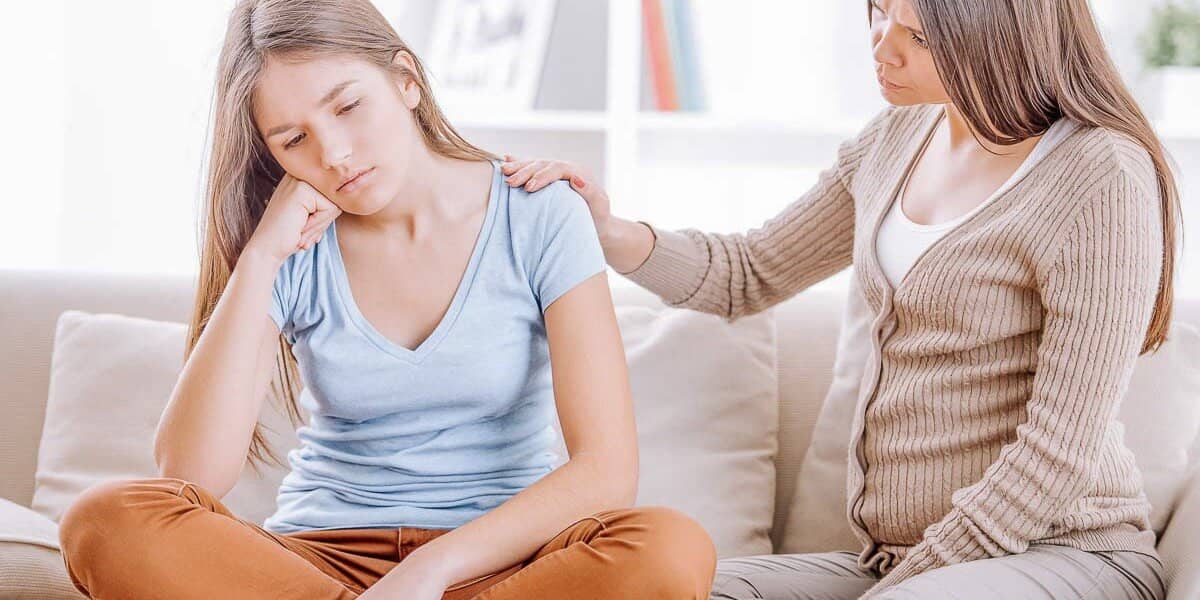Understanding and Protecting Kids' Mental Health in Divorce

When many parents begin the divorce process, they are bombarded with resources to help them learn how to talk to their children about the divorce. However, very few people talk about the realities of how divorce impacts children or offer advice to help parents make the divorce process as easy as possible for their kids.
By understanding how your divorce may affect your child and arming yourself with a list of resources that can help your kids cope with the situation, you can help your child deal with the intense emotions they will face during this difficult time.
What science says about children of divorce
When children experience negative life events, it impacts their physical and mental health for the duration of their lives. In fact, healthcare professionals often tally up a person’s adverse childhood experiences and assign an ACE (Adverse Childhood Experience) score to them for the purpose of determining how these experiences are impacting the person’s health. These adverse experiences include things like abuse, the loss of an immediate family member, and divorce.
Due to the increasing prevalence of divorce across the world, researchers have studied the effects of divorce on children extensively. In fact, one meta-analysis collected data from several separate studies to create a comprehensive list of ways in which divorce impacts children.
Adjustment problems
In many cases, the stress that comes with parental divorce puts children at an increased risk for adjustment problems. Sometimes, these adjustment issues present as a sudden drop in grades or dropping out of school. Other times, they present through disruptive behaviors such as acting out, rule-breaking, or impulsive behavior. Adjustment difficulties can also cause strained relationships with friends or family members, including one or both parents.
The good news is that often, adjustment problems are temporary. Studies have shown that the vast majority of children with divorced parents become well-adjusted adults.
Depression and anxiety
Mostly situational adjustment issues are minor compared to the potential long-term emotional impacts of divorce that some kids experience. Children of divorce are more likely to experience depression and anxiety throughout their lifetime. They are more likely to battle alcoholism or other substance use issues as a way of coping with the emotional pain of their parents’ divorce. Children of divorce are also at a higher risk of unstable relationships in adulthood, both through risky sexual behaviors and marital instability.
Better results when divorce is amicable
Researchers believe that children who witness an amicable divorce are actually less likely to experience these negative issues and even show resilience throughout their lives as a result of living through this adverse childhood experience. Parents who utilize mediators to work through conflicts during the divorce also help their children develop resilience.
Parents can help reduce their child’s risk of the negative long-term impacts of divorce by remaining actively engaged as parents, even after the divorce. This helps children see themselves as loved and can help them recognize that divorce didn’t break apart their family. Rather, it reshaped it.
Inversely, children who have a higher ACE score prior to the divorce are at an even greater risk for all of the previously mentioned issues after the divorce is finalized. For example, children who grow up in poverty or high-conflict households find their parents’ separation even more traumatic, as do children from certain ethnic backgrounds. Other factors, like parental alienation or parental abandonment after the divorce, can have long-term effects on children because they associate conflict between people in a relationship with abandonment.
Although time is needed for a child to make a healthy transition into post-divorce life, parents can use this information to their advantage when starting the divorce process. If parents can make every effort to separate peacefully and learn how to effectively co-parent together, they can ultimately help their child come out of the divorce with increased resiliency and contentment.
.png)
Are you interested in divorce coaching or therapy?
Our FREE checklist can help you find the right fit.
Download our checklist of questions to ask a potential therapist or coach today.
Seeking help
Even if you and your former spouse are doing everything in your power to help your child cope with the divorce, you may still see signs that your child is struggling. If that’s the case, you will certainly want to consider outside help from one of the various resources available to families in need.
School counselor
If your child is struggling at school, a school counselor can be a helpful resource. School counselors are trained to help children work through transitions and cope with adverse childhood experiences by providing a safe, supportive space for the child within the school building. Counselors can monitor the child’s behavior and grades, give the child a space to share what’s on their mind, and serve as a bridge between the child, their parents, and the teachers in the school.
Depending on the specifics of the situation, a school counselor may help the child set small, measurable goals to help them get back on track academically. They may also provide the family with additional resources, such as tutoring options or community support groups.
Peer support group
Your child may feel like nobody understands what they’re going through, and that’s completely normal. In these cases, a peer support group may help your child build relationships with new friends who understand what it’s like to live through a divorce. These groups can help with accountability and behavior modification and can reduce the risk of isolation, all of which are important during this difficult time.
Mentor
A mentor may be helpful if you notice your child withdrawing and not talking to adults. A mentor can also help if one parent has walked out on the family and the child isn’t dealing with the loss well. Luckily, many organizations throughout the United States offer mentoring opportunities in situations like this. Your child’s school or even your pediatrician can help put you in touch with mentor programs in your area.
Mental health therapy
If you feel like your child is having an exceptionally hard time coping with the divorce, professional help is another option. Trained mental health professionals such as social workers, counselors, and family therapists can help your child work through the intense and conflicting emotions they may be feeling. Individual therapy can also help children learn effective coping skills while giving them a neutral, nonjudgemental space to share what’s on their mind.
If you aren’t sure where to look, reach out to your child’s pediatrician for recommendations. Doctors often have referral processes in place to help you find a therapist or other type of support professional.
Parental help
Parents can also help their children cope with divorce by talking with them, answering questions, listening to their concerns, and validating their feelings. Parents must remember, however, that they can’t help their children if they aren’t doing what they need for themselves. There’s a reason why they tell you to put your oxygen mask on first before helping someone else. This is why parents need to take steps to keep their own physical and mental health in check during divorce.
As a parent, don’t be afraid to seek your own therapy and peer support groups. These resources can help you stay mentally healthy while providing you with tools to help your child work through the divorce. Together, you and your child can get the help you need to transition into post-divorce life as smoothly and peacefully as possible.
Regardless of the specifics of your separation, Hello Divorce is here to offer support. Our blogs and social media accounts are specifically designed to provide helpful tips and resources to make this transition easier and calmer for everyone.
We don't just want to help you reach a settlement with your former spouse, either – we want to help your family come out of this life event stronger and happier than before. So whether you need tools to finalize your divorce or a simple emotional first-aid kit to mend your broken heart, know that the team at Hello Divorce is here to help.
Sources
Take the ACE Quiz. Center on the Developing Child. Harvard University.Parental divorce or separation and children's mental health. (February 2019). World Psychiatry.



